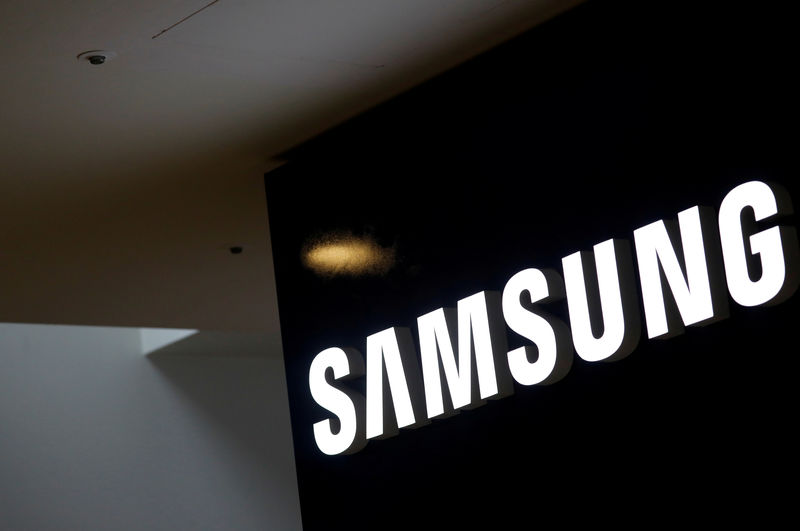By Heekyong Yang and Ju-min Park
SEOUL (Reuters) - Strong sales of Samsung (KS:005930) Electronics' Galaxy Note 10 smartphone series are limiting forecast profit falls at the South Korean tech giant, raising hopes it is getting back on a growth track after years of moribund sales.
Samsung, the world's largest smartphone maker, is powering ahead with the launch of 5G phones and $2,000 foldable handsets as it heats up competition with rivals U.S. Apple (NASDAQ:AAPL) and China's Huawei [HWT.UL] following a battery explosion scandal in 2017 that hurt sales.
Analysts said the strategy may be paying off as the company on Tuesday flagged a smaller-than-expected fall in third quarter operating profit, saying at the same time that sales of the Note 10 both at home and in Europe had been strong since the Aug. 23 launch.
There are also early signs that the global memory chip business, a key driver of Samsung's profit, will stabilize next year after prices were eroded by a weak global economy and slower spending by key data center customers.
"With its foldable smartphone that no other competitors have yet launched, Samsung will likely lead the high-end smartphone market as it would mass produce foldable smartphones next year," said Song Myung-sup, an analyst at HI Investment & Securities.
"Also, a growing number of data center customers are ordering more memory chips ... possibly slowing down the drop in prices," Song added.
Samsung said it has sold more than one million of the 5G Note 10 handsets in South Korea, making it the company's fastest selling flagship model at home, and sales in Europe were also strong.
Analysts credit Samsung with receiving a boost from U.S. sanctions on Huawei that effectively bar U.S. firms from supplying the Chinese competitor.
Huawei's new high-end Mate 30 smartphones are being shipped to Europe this month, but the sanctions mean the product lacks access to a licensed version of U.S. Google’s Android operating system, as well as mobile services that include its Play Store and popular apps like Gmail, Youtube or Maps.
Jene Park, a senior analyst at market tracker Counterpoint Research, said Samsung was also moving in on Huawei at the lower end of the market in Europe and Latin America.
Sales of Huawei's Honor smartphones, which are mainly in the $180-$249 price band and accounted for a large portion of sales outside of China, had dropped significantly since March, allowing Samsung to boost sales volumes of its new A series, according to Counterpoint.
CHIP RECOVERY?
But Huawei's woes also present problems for Samsung as the as the world's biggest semiconductor firm by revenue, with the Chinese firm a major buyer of its memory chips.
Some analysts are more cautious about the outlook for the global memory chip business, which remains clouded by U.S.-Sino trade conflict and provides two thirds of Samsung's profit.
Samsung's profit has been slumping every quarter since the year-end holiday quarter last year and is expected to fall again in the current quarter year-on-year.
In a limited trading update ahead of full earnings later this month, Samsung on Tuesday said operating profit for the July to September quarter would likely tumble 56% to 7.7 trillion won ($6.44 billion), slightly better than the 7.1 trillion won forecast by Refinitiv SmartEstimate. It also flagged a revenue fall of 5.3% to 62 trillion won.
"The strong smartphone sales has limited ability to fix all Samsung's issues," said Park Sung-soon, an analyst at Cape Investment & Securities. "Data center customers, a major driver for memory chip business, are pursuing conservative investment for the time being, not particularly uplifting news for Samsung."
Shares in Samsung were up about 1.5%, just slightly ahead of an 0.8% rise in the wider market in afternoon trade.
